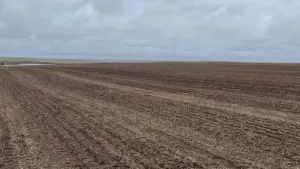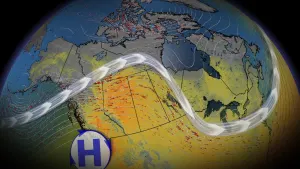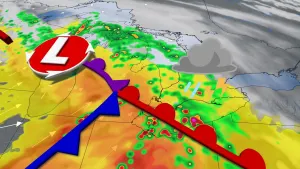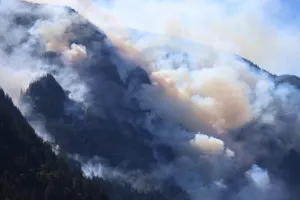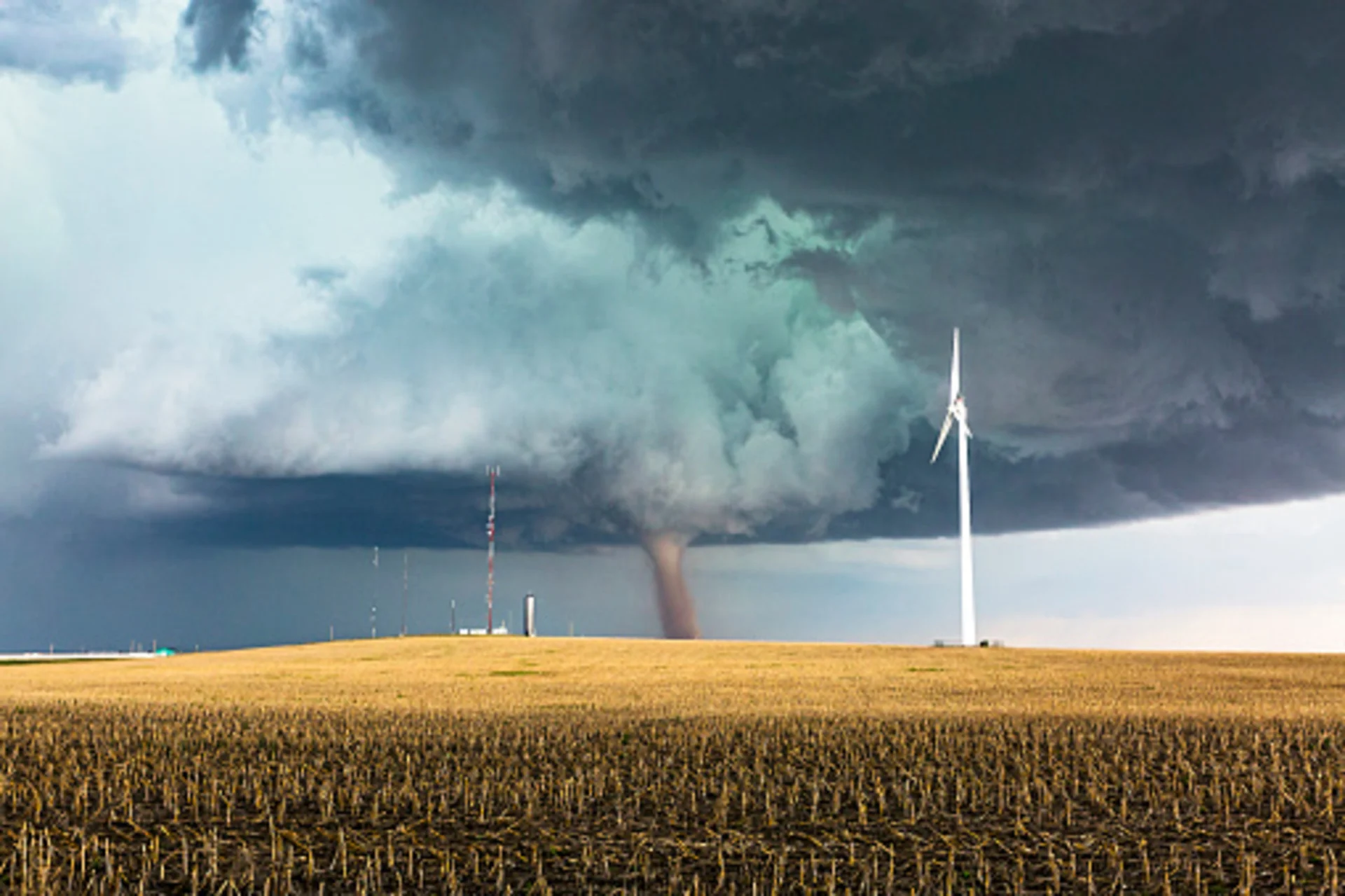
Friendly reminder: Don't shoot at a tornado
Tornadoes and severe storms are starting to flare up in parts of Canada and the U.S.
Police officers in Lawrence, Kansas recently sent out a reminder via Twitter to exercise safety during severe weather, prompting one user to quip they could ride out a tornado with "whiskey and a shotgun".
While the Twitter user was (likely) joking, police responded to the Tweet, advising that it's not safe to shoot at a tornado.
That's good advice, and it may sound like common sense -- but police were right to acknowledge the tweet. If history has taught us anything, it's that people have devised (and tested) strange and sometimes unsafe ways to combat extreme weather. Here are a few examples.
5. FLORIDA MAN'S JOKE ABOUT SHOOTING BULLETS AT HURRICANE GETS TAKEN SERIOUSLY
In September 2017, 22-year-old Ryon Edwards of Daytona Beach, Florida created an open Facebook invitation calling on people to shoot at Hurricane Irma.
More than 50,000 people signed up to participate. In an interview with the Associated Press, Edwards said it "seems the joke may have gone over many people's heads ... I don't know whether to laugh or sigh."
The Facebook group went so viral officials were forced to warn against the idea, just in case people didn't get the joke.
4. MAN TRIES TO ALLEVIATE FLOOD WITH A BUCKET
In June 2017, a Florida man tried to save his street from floods by draining the road, one bucket at a time.
Video of his efforts went viral on Facebook, racking up more than 2 million views.
He eventually gave up and went home -- but we'll always have this video.
3. U.S. ARMY TRIED TO USE BOMBS HAWAIIAN VOLCANO TO STOP LAVA FLOW
In 1935, Hawaii's Mauna Loa volcano erupted, sending a river of lava toward a nearby community.
The river was advancing about 1.5 km per day and was expected to reach Hilo, a city with 15,000 residents, in less than three weeks' time.
Volcanologist Thomas Jagger, founder of the Hawaiian Volcano Observatory, proposed bombing the walls of the volcano that contained lava channels. It was theorized this would create new openings in the channels, which may make it possible to direct the lava away from Hilo.
On December 27, the U.S Army dropped twenty 600-pound bombs on the volcano. Five landed on their intended target.
The other 15 landed hundreds of feet away, and one failed to explode.
Apart from missing the target almost completely, it was later noted the bombs would have been too weak to break through the walls of solidified lava anyway.
The lava slowed down six days later, but researchers believe it was due to receding volcanic activity and not because of the bombs.
Researchers have tried to manipulate volcanoes with the use of bombs a few times since, but the results have been dubious.
2. COOLING THE SEAS TO STOP HURRICANES
The Salter Sink is a 2009 invention by Stephen Salter, emeritus professor of engineering design at the University of Edinburgh in Scotland.
It's comprised of a wave-powered pump that would push warm surface water down to cooler depths.
Hurricanes typically form when ocean temperatures reach 26.5 degrees Celsius. If a Salter device could keep ocean temperatures lower that could, in theory, reduce storm intensity.
Salter theorizes that hundreds of thousands of the devices in hurricane-prone areas could measurably reduce storm strength.
1. GET RID OF THAT SMOKE!
Wildfires burning in B.C in the summer of 2018 created a thick layer of smoke that contributed to some of the worst air quality on the planet.
It inspired the creation of a Facebook event called "Blow Spokane's Smoke Away", with more than 1,700 people signing up to participate.
Residents of Spokane, Washington were asked to place at least five box fans on their roofs, turned up to the highest setting, and pointed toward "northeastern Canada" at the same time.
"There are roughly 550,000 residents of the Spokane, Washington metropolitan area ...To get rid of this smoke, we have to work together as a community," reads the Facebook description.
"After much deliberation and mathematical calculation, we have figured that it is absolutely possible for us to blow this smoke away with high powered fans ... every resident must place at least 5 box fans on their roof. Turn your fans on to the highest setting, and aim them toward northeastern Canada."
Organizer Caleb Moon told Global News he's serious about the idea, but the Facebook page's description was later updated to read "STRONG SATIRE AHEAD."







